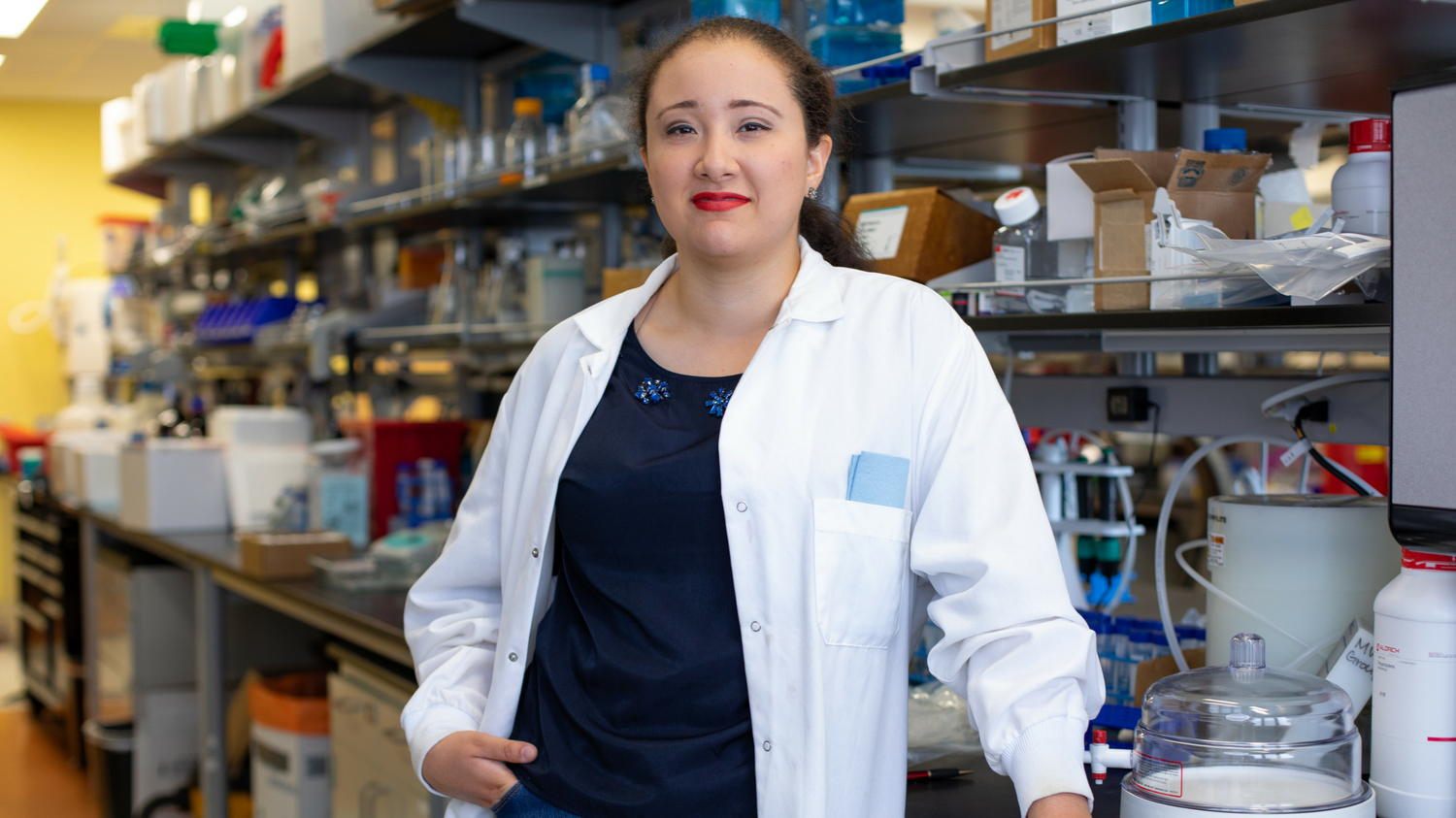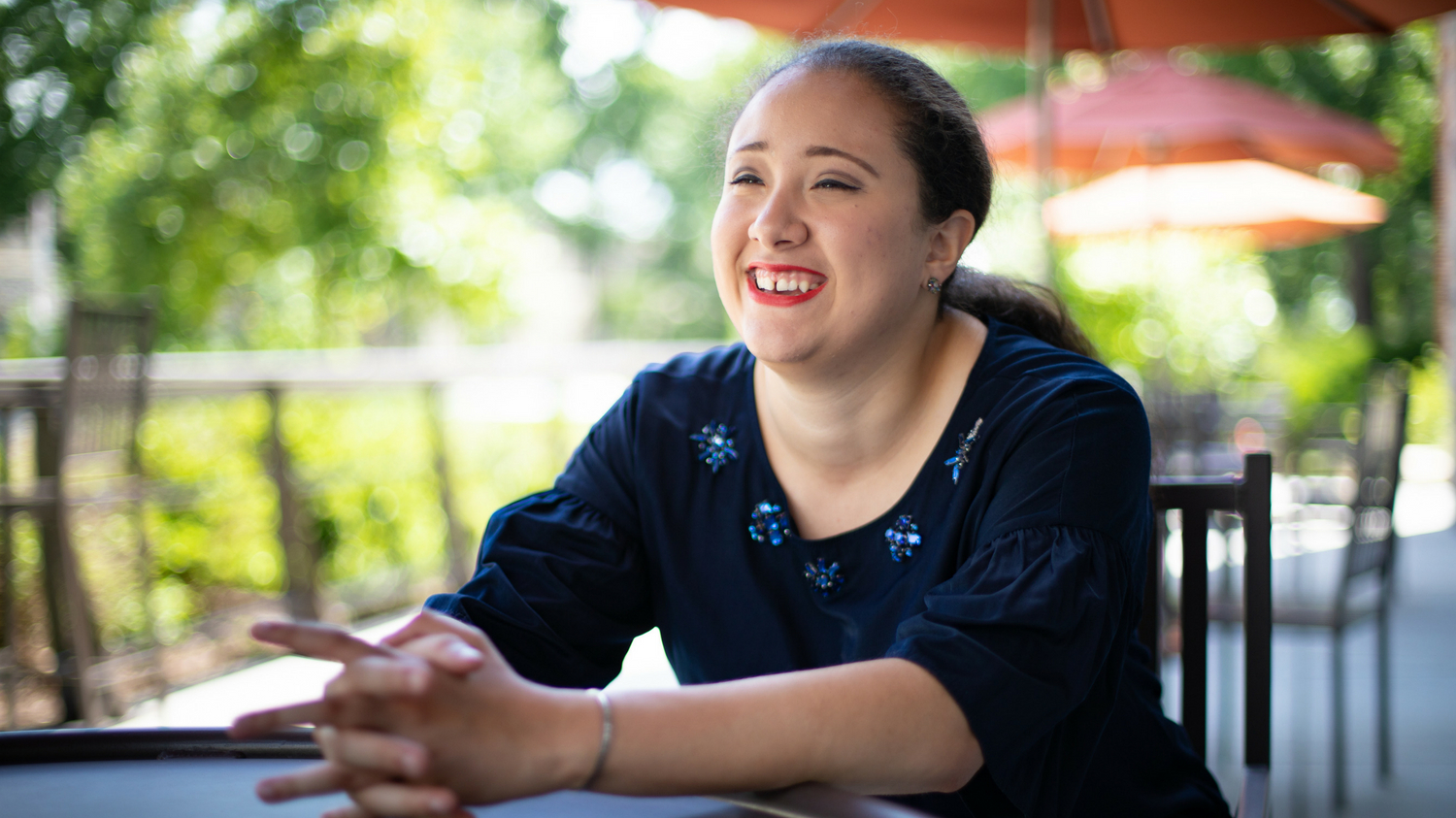A SMART combination: Graduate student credits Virginia Tech mentors, support programs with scholarship award

Katrina Colucci-Chang, a doctoral student in the Department of Biomedical Engineering and Mechanics within the College of Engineering, is an engineer with a dancer’s mindset.
Part of her inspiration to study engineering stems from her love of dance. During her undergraduate education at George Mason University, Colucci-Chang was a bioengineering major with a dance minor, and had an original interest in exploring how to help dancers perform better and avoid exhaustion.
“It’s always been in me, the dancing aspect,” said Colucci-Chang. “So when I went to undergrad, I always knew I wanted to continue dancing.”
She has danced ballet, jazz, modern, and even salsa and merengue – styles influenced by her home, Puerto Rico. As a dancer throughout middle and high school, she had a keen interest in human performance optimization and how certain factors affect that performance.
Now she’s translating that same idea into her research in cardiovascular engineering with Steven Poelzing, an associate professor in the Department of Biomedical Engineering and Mechanics whose lab and research programs are located at the Virginia Tech Carilion Research Institute in Roanoke. Together they’re working to better understand what happens to the heart at the cellular level during heart attacks, and how changes in electrolyte concentration affect cardiac activity.
This research also dovetails with her work at NAVAIR in Patuxent River, Maryland, through her recently awarded scholarship with the Science, Mathematics, and Research for Transformation (SMART) Scholarship for Service Program. With a deeper understanding of how heart rate is affected by changes in pressure or levels of oxygen, Colucci-Chang can help Navy pilots perform better in the air.

The highly competitive SMART Scholarship-for-Service Program is a Department of Defense (DoD) program for graduate and undergraduate students pursuing a degree in a science, technology, engineering, or mathematics discipline. Benefits include full tuition, monthly stipends, and guaranteed employment with the DoD. Throughout their time in the program, students participate in summer internships at a DoD SMART facility and then begin their service commitment (full-time employment) at that same facility upon successful degree completion.
“I have my father to thank for it,” said Colucci-Chang in regards to earning her 2018 SMART Scholarship.
When her father was a professor in chemical engineering at the University of Puerto Rico, he would email scholarship opportunities to his students. After Colucci-Chang began pursuing her undergraduate degree in bioengineering, she began receiving those emails from him as well.
She applied for the scholarship during her first year as an undergraduate, and again in her fifth year, but was denied both times. This year, however, she decided to be forward in her approach during the matching process. Once she knew she was eligible for the scholarship, she began emailing sponsoring facilities to see if they were looking for a SMART scholar to work with them.
“I probably sent more than a hundred emails, and, luckily, one of them was looking for a SMART and thought we were a great match,” she said.
Her goal is to conduct one big project that combines her work at both Virginia Tech and NAVAIR in order to maximize her SMART opportunity. The best way for her do so, she has discovered, is through her faculty advisors and other mentors. Although Colucci-Chang has a neighbor in Puerto Rico to thank for first piquing her interest in becoming a Hokie, she said the chance to work closely with mentors was a driving factor in her decision to attend Virginia Tech, and they have since made her time in Blacksburg truly unique.
“I’ve never really had mentors before,” she said. “Here, I feel like I have a really good support network, both within the department and outside of it.”
She connected with some of her mentors through her involvement with the Graduate Society of Hispanic Professional Engineers (Grad SHPE), a segment of VT-SHPE that provides resources for all Latino scientists and engineers who hope to become better leaders and professionals in their field.
This group has helped Colucci-Chang foster a sense of confidence, and actually played a role in helping her receive the SMART scholarship.
“I really owe it to them for pushing me to write those emails because if it wasn’t for them, I probably wouldn’t be here,” she said.
Additionally, she credits the Virginia Tech Initiative for Maximizing Student Development (VT-IMSD) with helping her see biomedical challenges through a dynamic and global perspective. VT-IMSD is a National Institutes of Health training program designed to increase the number of minorities with a Ph.D. in biomedical sciences, behavioral sciences, and engineering who want to pursue a career in biomedical research. This program first helped Colucci-Chang get her start at Virginia Tech.
She is also a member of the New Horizon Graduate Scholars (NHGS) program, which seeks to support and enhance diversity within the College of Engineering’s graduate student population. The program also provides a collaborative research network for its students through the recognition of the contribution diversity brings to a research environment.
“Katrina is just one of the standouts who struggled a little bit in the beginning, but quickly got her bearings and continued to push herself to go after a SMART scholarship, which isn’t easy to do,” said Jack Lesko, the associate dean for research and graduate studies in the College of Engineering and a developer of the NHGS program. "This is just one example of Dean Ross' vision embodied by the idea of inclusive excellence."
Now in its sixth year, the NHGS program has been able to increase the percentage of women in engineering at Virginia Tech who are pursuing doctoral degrees to 12 percent. The program will also support around 100 underrepresented graduate students for the fall 2018 semester, with its largest incoming cohort to date of 36 students.
“We’re starting to make an impact,” said Lesko. “The whole idea is to get students here and support them, help them with program development and professional development, and give them a sense of community.”
Colucci-Chang said programs like NHGS have given her the opportunity to meet many like-minded people and form close friendships. And whether dancing on the stage or researching in the lab, she knows that kind of support can make all the difference.
Written by Rebecca Sutton and Emily Roediger







